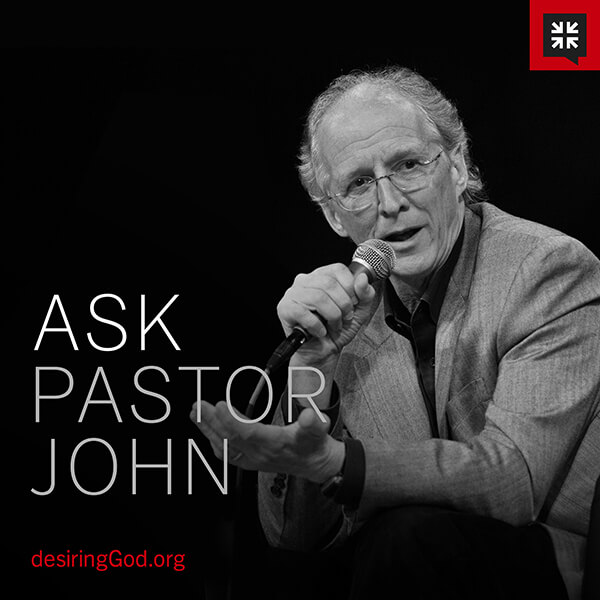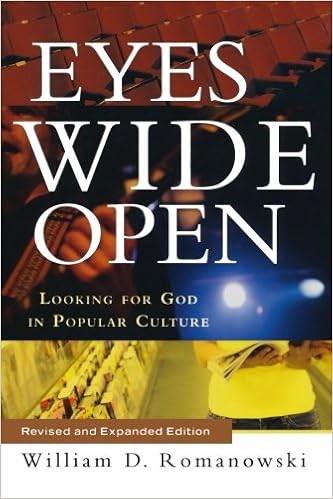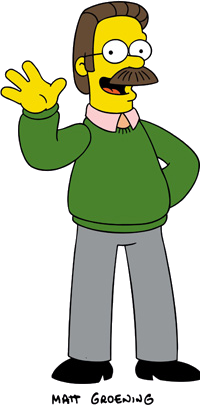Author Information
All Christians want to change the world, but very few are going about it the right way. At least that’s what James Davidson Hunter argues in his book, To Change the World: The Irony, Tragedy & Possibility of Christianity in the Late Modern World. Hunter is a Christian sociologist and in this book, he targets today’s church - the post-Constantine American culture that seeks to “change the world.” Professor Hunter is a Distinguished Professor of Religion, Culture, and Social Theory at the University of Virginia and Executive Director of the Institute for Advanced Studies in Culture. His eight books and numerous writings are primarily concerned with the problem of meaning and moral order in a time of political and cultural change in American life.
Hunter takes on the prophetic role of prayerfully asking what God is doing and responding in criticizing the dominant view/status quo in western Christianity (i.e. the common view) while energizing his hearers by bringing divine solutions to the table. His language is bipartisan in nature in regards to the topic of culture.
Overview of Content
To Change the World is a 358-page book composed of three essays broken down into chapters. This work could be considered one series in three volumes. The irony and tragedy that Hunter points out is the reality of prominent efforts throughout Christendom in their failed attempts at changing the world/culture. Hunter calls the “common view” the belief that “culture” is found in the hearts and minds of individuals (i.e. values).
Hunter’s basic argument is that the current paradigm of “changing the world” stems from a false premise, which not only hinders any real change, but perpetuates false notions of what makes a culture or how cultures are changed. The central point is that the “common view” results in no change worth fighting for - hence the irony that is alluded to in the subtitle.
In response to that irony, Hunter seeks to displace the dominant Christendom-like philosophy of culture with practical suggestions for implementing a “faithful presence.” He argues that culture change is not the byproduct of refining beliefs and values. It is also not a change in the hearts and minds that leads to a culture change. He submits that change is made top-down whereas much of the rhetoric of the western Church reveals an attempt to change culture from the bottom up (democratically).
The common view holds to “idealism,” which is the belief that by changing the hearts and minds of individuals, whether by conversation to Christ or by direct engagement with ideas, the culture as a whole can be changed. Hunter says, false! If the definition of culture is “a complex structure of elites, networks, technology, and an institution which is highly resistant to change,” the current paradigm for culture change should seek to target those intricate groups instead of individuals. Most explicitly stated, “the work of world-making and world-changing are, by and large, the work of elites.”
Overall, the alternative view of culture and cultural change is presented in eleven propositions: Culture is, 1) a system of truth claims and moral obligations, 2) a product of history, 3) intrinsically dialectical (i.e. institutions and individuals are inseparable), 4) a resource/form of power, 5) produced by symbolic capital, 6) generated within networks, 7) neither autonomous nor fully coherent, 8) changed from the top down, 9) typically initiated by elites who are outside of the centermost positions of prestige, 10) changed when networks of elites and the institutions they lead overlap, 11) changed rarely if ever without a fight.
Most importantly, the book ends with a theology of “faithful presence,” which is driven by a missional-incarnational ecclesiology. Faithful presence is rooted in an acknowledgement of God’s faithful (incarnational) presence amongst his people manifested through religion, vocation, and other spheres of influence.
Evaluation
Content
The content of this book is “academic” in nature. Hunter’s sociological/theological perspectives complement each other. The examples of organizations that have implemented the common view rhetoric were prominent in the 90’s, which targets most of today’s church leaders.
Argument
Hunter’s logical argument is premise 1) Christendom has embraced idealism as the means to change the world and build the Kingdom of God on earth. Premise 2) Idealism is based on a false premise. Therefore, Christians means of changing the world is “almost wholly mistaken.” He challenges the simplistic view of culture. The truth is cultures are complex infrastructures versus an intellectual framework. Hunter argues culture is an environment versus a system of beliefs, but I submit that they can be a combination of both. No need for binary traps.
From that reasoning, Hunter argues that it must then be shaped/changed from the top down (via elites) versus from the bottom up (via peripheral). Those with enough cultural clout to gain a hearing. The New York Times (elite organization) versus the local newspaper is a good example of who is likely to institute cultural change. There are numerous examples in the first two essays of Christian Right, Left, and Neo-Anabaptist organizations that were prominent in the 80s-90s. I wonder how their aggressive/flawed approaches affected Hunters strong bias.
The time for transformation by the renewing of the minds is now. To Change the World is spot on and apropos for a generation who follows the “Make This Culture Great Again” thinking. Sincerity plus ignorance is often a recipe that leads to frustration and failure. Hunter goes to great lengths and argues well against the common view of idealism.
The Heart of the Issue
Books that challenge the status quo (especially Western Christendom) are of great interest to me. But the heart of this issue is an issue of the heart. The problem is not a faulty approach to culture change, but rather a misunderstanding of what is going on in the hearts and minds of the individuals who have adopted the common view approach or idealism. At the risk of being simplistic, one might argue that the solution here is to simply think differently about culture change - I would argue otherwise.
The argument in the book would be even more powerful if the realities of spiritual warfare were considered. The Church did not come up with the notion that cultures should be changed or that a separatist impulse is spiritual maturity. Rather than saying those things are “wrong” and “doomed to failure” I’d suggest seeing it for what it really is; namely, deception. That is spiritual language that makes sense of it in Pauline language.
Paul confirmed “we are not fighting against flesh-and-blood enemies, but against evil rulers and authorities of the unseen world, against mighty powers in this dark world, and against evil spirits in the heavenly places.” And if our struggle is spiritual so should our weapons and tactics be. Idealism is not the enemy, but spiritual forces of wickedness. Therefore, we could leverage idealism as capital to gather power and status rather than fight against it.
Integration and Application
This book addresses some of the leading issues in my life and ministry. The military culture has many cultures within. These are sacred places that must be engaged with faithful presence. Military Chaplains are doomed to fail if they believe their job is to change behavior within the cultures in which they serve. If an Airdale brings his brown shoes to a surface warfare ship, he will be rejected. If a recon Marine brings his medium regulation haircut to the drill field he will be ostracized. If any Marine with an MOS not beginning with “03” invites himself to a platoon of 03s, he will not be received well. All that to say, this book has tremendous ministry implications for military chaplaincy.
It is the chaplain’s role to contest the underlying values that set a particular culture, inviting others to consider if those values are in alignment with a missional-incarnational God who deeply loves, values, preserves, and redeems humanity.
The majority of my life I have witnessed the ironies and tragedies of trying “change the world” in the name of Christianity. And what I may have been witnessing was simply a sad attempt at behavioral modification. Prior to reading this book, the “common view” approach to culture was a reality. I grew up listening to Dr. James Dobson and Focus on the Family on the radio. My siblings and I had every episode of McGee and Me, and we listened faithfully to Odyssey USA - all of which Hunter associates with the “common view.”
Although I was too young to vote at the time, the churches I grew up in were very proactive in the “culture war” thus advocating political conservative organizations, distributing “Christian voter guides,” initiation litigation and lobbying politicians. The most I have ever witnessed the publics involvement in politics was in Hawaii. And this mindset crept into the local Churches. The voter guides were bulletin inserts and announcements to “Pray for our country” were major themes during election season. As far as I noticed, nobody was praying for God to develop our hearts for incarnational-missional ministry. The feeling I have had for over three decades of church is this “us vs. them” mentality. I maintained a low-grade separatist mentality. I’m 36 now and am praising God for my new perspective on “How (not) to Change the World.” Like Jesus, I do not want to, nor will I ever try to change a culture. I would rather maintain a faithful presence in it with an incarnational-missional mindset of speaking truth in grace.
Not only do I believe it is time for the Church to get out of the brick and mortar and put their feet up on coffee tables and make disciples at the strategic and tactical levels of spiritual warfare; that is, engaging the values and beliefs on a spiritual level and engaging it with truth. In any case, I believe it is time for renewal on the Church’s approach to culture, behavior modification techniques and the missional-incarnational models of ministry. We are not here to change the culture per se, but rather to engage it faithfully and being present; in other words, a ministry of faithful presence, which is missional-incarnational and full of grace and truth.










.jpg/220px-Guttermouth(by_Scott_Dudelson).jpg)





